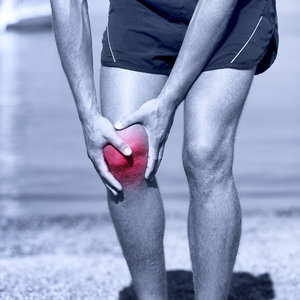2015 March - Sports Injuries
Are you suffering from a sports or fitness injury?
 With March Madness just around the corner in addition to the NBA and NHL playoffs, many people will soon be gearing up for various types of athletic events. Although regular exercise is highly recommended to promote optimal health, engaging in rigorous activities often pose the risk of suffering from injuries, especially if special precautions are not taken.
With March Madness just around the corner in addition to the NBA and NHL playoffs, many people will soon be gearing up for various types of athletic events. Although regular exercise is highly recommended to promote optimal health, engaging in rigorous activities often pose the risk of suffering from injuries, especially if special precautions are not taken.
Preventing injuries is the best way to get the most out of sports activities and stay healthy. Here are a few recommendations that have proven to be useful:
- Start out slowly and gradually allow your body to get into shape before engaging in a vigorous, new sport. Participating in athletic events such as a warrior marathon without properly preparing, and then becoming seriously injured, is a growing problem among the baby boom generation. Doctors are actually beginning to call this phenomenon boomeritis.
- Perform a dynamic warm-up before exercising and a cool down afterward as this helps prevent muscle soreness.
- Wear appropriate footwear for your activity so that the foot is supported and protected but is able to respond to the demands of the terrain or playing surface.
- Use proper techniques, which can be learned from a professional trainer or physiotherapist. This is especially important for people who have suffered previous injuries, as working with a therapist has been shown to speed recovery and improve strength in the injured site.
- Allow time for your muscles to rest and recover after rigorous activities as overuse is one of the primary causes of sports and fitness-related injuries. For example, with sports like ultimate frisbee or basketball a general rule of 3 days of activity to one day of rest is recommended. Speak to the physiotherapist at North Hill Physiotherapy to help you find the right balance based on your activities.
If you are unable to prevent an injury be aware of the signs that one has occurred so that you can start to treat it right away. Symptoms such as swelling, serious pain, tingling or numbness, a loss of mobility or strength, and skin discoloration indicate that it is time to rest and treat the injury. Rest, ice, compression, and elevation (RICE) is usually sufficient for the treatment of minor injuries*, but major injuries typically require medical attention and physiotherapist.
If you are suffering from a current or previous sports injury and would like help during your recovery our trained professionals can assess and correct your muscle balance and biomechanics, show you appropriate strengthening and stretching exercises, and use physiotherapist treatment techniques that have been proven to help get you back to sport. Rehabilitation in the form of physiotherapist is a highly effective way to reduce the recovery period, improve strength and agility, and prevent additional injuries from occurring.
Our physiotherapists would be happy to assess your current or previous injury and create a program tailored specifically to your needs and goals. Call North Hill Physiotherapy to make an appointment or to ask any questions you may have.
*New research is emerging examining the use of ice in acute injury and suggests that ice may slow down the inflammatory response necessary to initiate healing. As the body of literature grows and practice changes we will be sure to update our recommendations.
References
1. Prescott JW, Yu JS. The aging athlete: part 1, "boomeritis" of the lower extremity. AJR Am J Roentgenol. 2012 Sep;199(3):W294-306.
2. Quatman C, Yu JS. The aging athlete: part 2, "boomeritis" of the upper extremity. AJR Am J Roentgenol. 2012 Sep;199(3):W307-21.
3. Olsen O, Sjøhaug M, van Beekvelt M, Mork PJ. The effect of warm-up and cool-down exercise on delayed onset muscle soreness in the quadriceps muscle: a randomized controlled trial. J Hum Kinet. 2012 Dec; 35:59-68.
4. Rome K, Handoll HH, Ashford R. Interventions for preventing and treating stress fractures and stress reactions of bone of the lower limbs in young adults. Cochrane Database Syst Rev. 2005; (2):CD000450.
5. Aurora A, Garg K, Corona BT, Walters TJ. Physical rehabilitation improves muscle function following volumetric muscle loss injury. BMC Sports Sci Med Rehabil. 2014 Dec 19;6(1):41.
6. Ristolainen L, Kettunen JA, Waller B, Heinonen A, Kujala UM. Training-related risk factors in the etiology of overuse injuries in endurance sports. J Sports Med Phys Fitness. 2014 Feb; 54(1):78-87.
